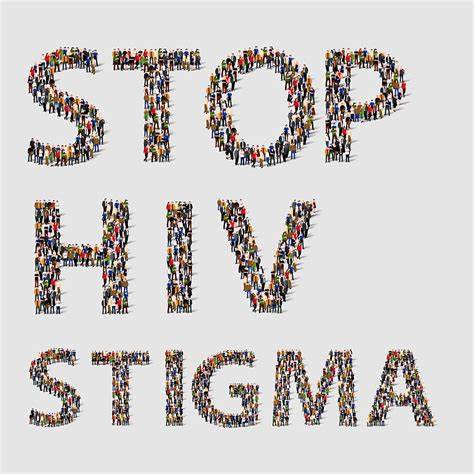Overcoming HIV Stigma: Breaking Down Barriers to Care and Equality
Share IT

Launch Your Dream Website with Us!
Click Here to Get in touch with Us.
Categories
HIV Stigma
HIV/AIDS Discrimination and Stigma: A Stuck in the Way of Progress
The battle against AIDS is still hampered by stigma and discrimination, even in the face of tremendous advancements in HIV prevention, treatment, and care. For people living with HIV, these unfavorable attitudes and discriminatory actions provide a serious obstacle that prevents them from accessing necessary services and feeds the epidemic.
Thank you for reading this post, don't forget to subscribe!Table of Contents

Comprehending Discrimination and Stigma:
HIV Stigma
- Stigma: Describes unfavorable attitudes, convictions, and preconceptions regarding individuals who are HIV positive. These are frequently the result of ignorance about HIV transmission, which breeds mistrust, confusion, and social rejection.
- Discrimination: Contains acts motivated by stigma, such as refusing someone access to housing, work, healthcare, or social interactions because of their HIV status.
Effects of Discrimination and Stigma:
HIV Stigma
- Decreased Access to Testing and Treatment: People who are afraid of facing prejudice are less likely to get tested for HIV, which delays diagnosis and prevents prompt access to life-saving care.
- Poor Mental Health Outcomes: Stigma can cause persons living with HIV to feel ashamed, alone, and depressed, which has a detrimental effect on their mental health.
- Increased Risk of Transmission: Fear of being judged or revealed can make people reluctant to use preventative treatments or engage in safe sexual behavior.
- Human Rights Violations: It is blatantly unequal and a violation of human rights to deny someone their basic rights because of their HIV condition.
Instances of Legal Obstacles and Social Attitudes:
HIV Stigma
- Misconceptions about Transmission: Myths regarding the “incurability” of HIV and the transmission of the virus through casual contact give rise to stigma and discrimination.
- Workplace Discrimination: Due to their status, people living with HIV may experience discrimination at work, loss of employment, or unfair treatment.
- Travel limitations: People living with HIV are subject to travel limitations in some countries, which further marginalizes them.
- Criminalization of HIV Transmission: In several nations, it is illegal to transfer the HIV virus to anyone, regardless of motivation or status awareness, which fosters a culture of fear and secrecy.
Fighting Discrimination and Stigma:
HIV Stigma
- Education and Awareness Campaigns: A key component of deconstructing stigma is addressing misunderstandings by providing factual information about HIV transmission and treatment.
- Antitrust Legislation: It is crucial to put regulations in place and enforce them that shield HIV-positive individuals from prejudice in the workplace, healthcare system, and other areas.
- Community Support: Creating welcoming, accepting spaces where those living with HIV feel comfortable sharing their status and obtaining essential assistance.
- Human rights advocacy: Pressuring governments to respect HIV-positive individuals’ human rights and end discriminatory policies.
HIV Stigma
We can build a more just and equitable society where those living with HIV may live healthy lives, obtain necessary services, and meaningfully participate in their communities by actively combating stigma and discrimination.HIV Stigma

Launch Your Dream Website with Us!
Click Here to Get in touch with Us.





























































Recent Comments